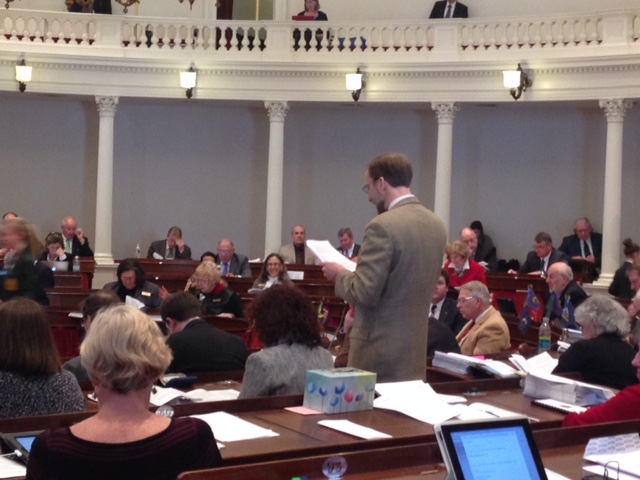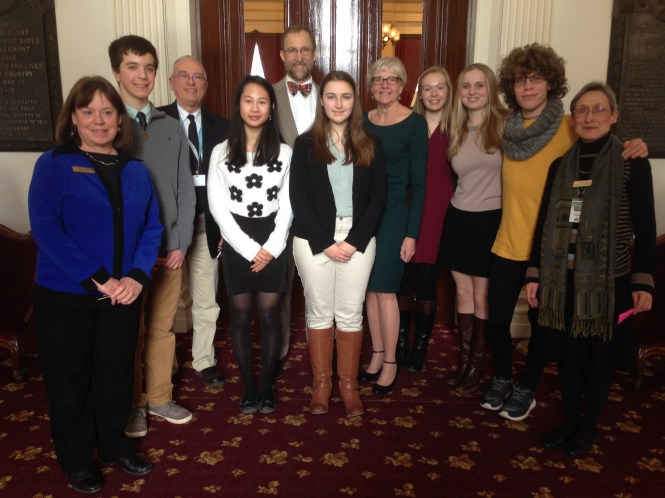It has been a busy week in the legislature after returning from the Town Meeting Week recess. The House passed a bill, H.40, that sets a renewable energy standard for Vermont, with emphasis on utilities meeting goals for renewable energy and efficiency. The Judiciary heard extensive testimony on enforcement provisions included in the water cleanup bill, H.35. In addition, Judiciary passed out of committee three bills: H.95, which makes incremental progress toward having cases against juvenile offenders brought more often in the family rather than the criminal division of Superior Court; H.105, which makes it a misdemeanor to disclose sexually explicit images without consent (so called revenge porn); and a committee bill that strengthens the ability of the Attorney General to bring cases against contractors for home improvement fraud.
Today, the House passed a bill, H.120, that I helped report out on the House floor yesterday.

The bill proposes to create a Vermont False Claims Act — an anti-fraud law modeled on the Federal False Claims Act (“FFCA”). The FFCA was first enacted in 1863 to combat fraud by suppliers of goods to the Union Army during the Civil War. Since that time, the FFCA has been amended several times to broaden its scope and enhance its ability to combat fraud against government funds in all sectors. Starting in 2009, the federal government has used the FFCA to recover over $23 billion in cases related to government programs.
The Vermont False Claims Act would provide for penalties for anyone who knowingly submits false or fraudulent claims to the State’s government. It would also authorize a person who has evidence of fraud, called the relator, to bring action on behalf of the State against those who commit fraud against government programs. Any recovery is refunded to the State, and in certain circumstances such as those involving Medicaid, to the federal government. Relators are eligible to collect a percentage of the funds recovered as an award for having rooted out such fraud.
The federal government has had such success in combating fraud and abuse with the FFCA that it created incentives in the Deficit Reduction Act (“DRA”) of 2005 for states to enact anti-fraud legislation of their own. These incentives relate specifically to recovery in cases of Medicaid fraud. The Medicaid program is funded jointly by the federal government and each state’s governments. Normally any recovery of funds fraudulently obtained under the Medicaid program are returned to the federal and state governments proportionally to the shares that each pay into the program. States that enact DRA-compliant legislation are qualified to receive a ten percent increase in their share of any amounts recovered under these laws. As a result, the majority of states have enacted some form of a False Claims Act.
If H.120 is ultimately enacted, Vermont’s share of Medicaid fraud recovery will increase from 46% to 56%. The financial incentive would allow Vermont to compensate Relators, while ideally detecting, enforcing, and recovering a greater percentage of the fraudulent claims filed in the state.
Enactment of the bill would have a positive impact on revenue for the State. The Joint Fiscal Office estimated that, through the law, Vermont could recover at least $280,000 dollars annually.
Earlier this week, we were visited by members of the South Burlington High School Young Democrats. I introduced the group from the floor of the House and the four South Burlington representatives chatted with them about our work. Here we are with the Young Dems.

